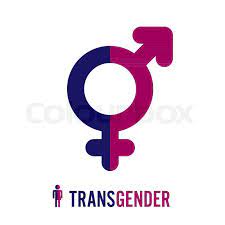Breast cancer is a complex disease with various subtypes, one of which is hormone receptive breast cancer. This type of cancer is driven by hormones like estrogen and progesterone, making it a unique beast that requires specific attention and treatment strategies. In this article, we’ll dig into what hormone receptive breast cancer is, how it develops, its prevalence, symptoms, diagnosis, treatment options, tips for living with it, and the future of research in this area. Let’s unravel the mysteries surrounding this type of breast cancer!
What Is Hormone Receptive Breast Cancer, Anyway?
Hormone receptive breast cancer (HRBC) is a subtype of breast cancer characterized by the presence of hormone receptors on the surface of cancer cells. This means that these cancer cells can utilize hormones, particularly estrogen and progesterone, to grow and proliferate. When doctors refer to HRBC, they often specify whether the cancer is estrogen receptor-positive (ER+) or progesterone receptor-positive (PR+), or both. This classification helps in determining the most effective treatment options and provides insights into the behavior of the cancer.Wife Makes Husband Take Female HormonesHormone Replacement Therapy ClinicsFtm Clitoris Growth
Understanding HRBC is crucial as it impacts how the cancer is managed. Unlike other types of breast cancer that may not respond to hormonal treatments, HRBC can often be treated by blocking or lowering hormone levels in the body. This type of breast cancer can vary significantly in terms of invasiveness and growth rates, making it essential to tailor individual treatment plans based on the specific characteristics of the tumor.
The Role of Hormones in Breast Cancer Development
Hormones play a pivotal role in the development of hormone receptive breast cancer. Estrogen, for instance, aids in the growth and differentiation of breast tissue, which is essential for normal breast function. However, for women who have HRBC, this same hormone can also fuel the growth of cancer cells. When estrogen binds to its receptors on the cancer cells, it activates a series of processes that promote cell division and tumor expansion, leading to the development of breast cancer.
Research has shown that prolonged exposure to estrogen, whether from hormonal therapies, menstrual cycles, or external sources, can increase the risk of developing HRBC. Other factors, such as genetics, lifestyle, and reproductive history, can also influence hormone levels and, subsequently, breast cancer risk. Understanding these connections helps in identifying individuals at higher risk and tailoring preventive measures accordingly.
How Common Is Hormone Receptive Breast Cancer?
Hormone receptive breast cancer is the most common subtype of breast cancer, accounting for approximately 70% of all breast cancer diagnoses. This prevalence indicates that a significant number of women (and some men) are affected by this disease, making it a primary focus for research and treatment efforts. Given its commonality, awareness and education about HRBC are crucial to early detection and effective management.
The incidence rates can vary based on several factors, including age, race, and family history. For example, postmenopausal women are more likely to be diagnosed with hormone receptive types of breast cancer compared to premenopausal women. Additionally, certain ethnic groups may have varying prevalence rates, which underscores the importance of culturally sensitive approaches to screening and education about breast cancer.
Signs and Symptoms: What to Look Out For
Like many forms of breast cancer, hormone receptive breast cancer often presents symptoms that may not be immediately apparent. Common signs include a lump or mass in the breast, changes in breast shape or size, and unusual discharge from the nipple. Some patients may also experience swelling or changes in the skin texture of the breast. It’s important to note that these symptoms can vary widely among individuals, and not everyone will experience noticeable changes.
Women who are at high risk for hormone receptive breast cancer, particularly those with a family history or genetic predispositions, should be vigilant in monitoring their breast health. Regular self-examinations and clinical screenings can help catch any abnormalities early. Knowledge of these signs and symptoms can empower individuals to seek medical advice promptly, leading to earlier diagnosis and better outcomes.
Diagnosis: How Do Doctors Find This Type of Cancer?
Diagnosing hormone receptive breast cancer typically begins with a clinical examination followed by diagnostic imaging, such as mammograms or ultrasounds. If an abnormality is detected, a biopsy is performed to remove a small tissue sample from the suspicious area. This sample is then examined under a microscope to determine whether cancer cells are present and, if so, whether they have hormone receptors.
In addition to standard diagnostic techniques, tests for specific hormone receptors (like ER and PR testing) are conducted to confirm the subtype of breast cancer. These tests are crucial because they help guide treatment decisions. The presence of hormone receptors can signify that the cancer may respond well to hormone therapies, which can significantly influence the overall treatment strategy.
Treatment Options: How Do We Tackle Hormone Receptive Cancer?
When it comes to treating hormone receptive breast cancer, there are several key options available. One of the most common treatments is hormone therapy, which includes medications like tamoxifen and aromatase inhibitors. These drugs work by blocking the action of estrogen or reducing its production in the body, thereby slowing or stopping the growth of hormone-dependent cancer cells. Hormone therapy is often used in combination with other treatments, such as surgery or chemotherapy.
In addition to hormonal treatments, surgery may involve removing the tumor (lumpectomy) or the entire breast (mastectomy), depending on the size and stage of the cancer. Radiation therapy may also be part of the treatment plan, particularly after surgery, to eliminate any remaining cancer cells. The choice of treatment depends on various factors, including the stage of cancer, overall health, and personal preferences, and should always be discussed with a healthcare professional.
Living with Hormone Receptive Breast Cancer: Tips and Tricks
Navigating life with hormone receptive breast cancer can be challenging, but there are strategies to help manage both the physical and emotional aspects of the journey. Staying informed about the disease and its treatments can empower patients, helping them make better decisions regarding their care. Connecting with support groups or counseling services can also provide emotional relief and practical advice based on shared experiences, making the process feel less isolating.
Maintaining a healthy lifestyle can also play a significant role in managing hormone receptive breast cancer. Eating a balanced diet rich in fruits, vegetables, and whole grains, combined with regular exercise and adequate sleep, can improve overall well-being and potentially enhance treatment outcomes. Additionally, practicing stress management techniques, such as meditation or yoga, can help in coping with the emotional toll of a cancer diagnosis.
Future Research: What’s Next for Hormone Receptive Breast Cancer?
The landscape of hormone receptive breast cancer research is continuously evolving, with numerous studies aimed at improving diagnosis, treatment, and patient outcomes. Ongoing research focuses on understanding the genetic and molecular underpinnings of HRBC to develop personalized treatments that target specific tumor characteristics. This includes exploring the role of biomarkers in predicting treatment responses, which could lead to more effective and tailored therapy options.
Additionally, clinical trials are being conducted to test new medications and treatment regimens, including combinations of existing therapies and novel drugs. Researchers are also investigating the long-term effects of hormone therapy and ways to mitigate side effects, ensuring that patients can maintain a good quality of life during and after treatment. As science advances, the future holds promise for improved management and outcomes for those diagnosed with hormone receptive breast cancer.
Hormone receptive breast cancer is a significant health concern that warrants attention, education, and research. Understanding its nature, prevalence, symptoms, and treatment options can empower patients and their loved ones to face the challenges it presents. As research continues to advance, there is hope for more effective treatments and continued support for individuals living with this disease. By staying informed and proactive, we can work together to combat hormone receptive breast cancer and improve the lives of those affected by it.


